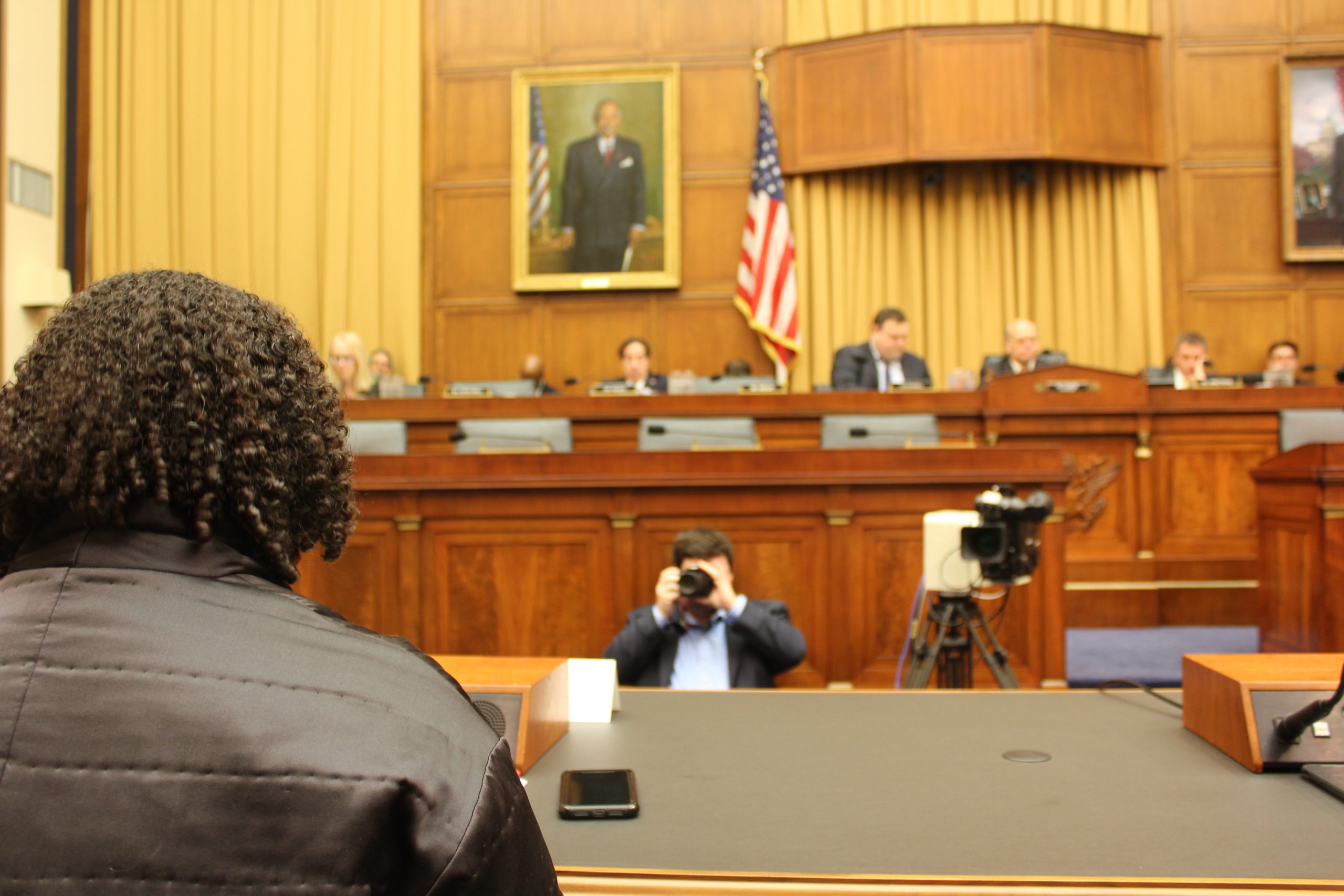The following conversion is a bit weird and a bit ironic, but it demonstrates the thinking that typifies “normies” who accept the state and it’s jurisdiction as a given, who have never tried challenging it “theoretically”, or not. My first comment was in reply to an article titled, “Five U.S. lawmakers accuse Amazon of possibly lying to Congress following Reuters report” shared to r/technology on Reddit. Enjoy!
Skyler: Lying to the criminal organization known as Congress is a virtue.
Scarlet109: Congress itself is not a criminal organization. Certain members of Congress are most certainly less than legal
Skyler: Congress is part of the state which is a criminal organization: https://everything-voluntary.com/everything-voluntary-chapter-4a
Scarlet109: The State is not a criminal organization
Skyler: Do you have any evidence that their codes and constitutions apply to anybody, giving them jurisdiction to use force against people not currently engaged in aggression (real crime)?
Scarlet109: That’s literally the point of the constitution, to define the government and its powers over the governed with consent of the governed. Also “aggression” is not an outright crime and I’m not sure what you mean by calling it a “real crime”. Not all crimes are violent.
Skyler:
Also “aggression” is not an outright crime and I’m not sure what you mean by calling it a “real crime”. Not all crimes are violent.
See my essay on the types of laws: https://everything-voluntary.com/two-types-laws-voluntaryist-perspective-politics
That’s literally the point of the constitution, to define the government and its powers over the governed with consent of the governed.
Do you have any evidence the constitution applies to anyone?
Scarlet109: Citing yourself as a reference is tacky at best, outright illegal in some cases.
The constitution has power because the population has largely agreed that it has power. This has been the case since the beginning. Power to the government by the governed for the governed.
Why does anything have value? Because people put value on things.
Skyler:
Citing yourself as a reference is tacky at best, outright illegal in some cases.
linking to my own essay to explain what i mean when i say something you didn’t understand is “illegal”? seriously, wut?
The constitution has power because the population has largely agreed that it has power.
Your evidence is popular belief? Is the Bible the word of god because of popular belief, also? The Quran?
Scarlet109: Using yourself as a reference is wrong.
No, the evidence is the fact that we have a country. You are asking me to prove a negative, which isn’t how this works. Continuing to repeat the same line over and over again does not make it true. The law is the law because it’s the law.
Religion is irrelevant in this conversation.
Skyler:
Using yourself as a reference is wrong.
Using my own words to explain my own words is wrong? Please explain that one for me, I’m not getting it.
the evidence is the fact that we have a country.
Continuing to repeat the same line over and over again does not make it true.
Mmkay. Anyway… how does “we have a country” prove the constitution applies to you, or me?
Scarlet109: That is what it means to be a citizen of a country. I’m not sure how this concept is difficult to grasp but clearly you aren’t looking for an actual answer.
Skyler: “Citizen” is a legal definition that assumes jurisdiction. You can’t assume what you’re trying to prove.
Scarlet109: You are literally arguing for the sake of arguing by this point.
Skyler: If you say so.
Scarlet109: What is your answer to why words mean what they mean?
Skyler: I don’t understand the question, please elaborate.
Scarlet109: You ask why the constitution has power. It has power because we, as the governed, agree that it has power. It’s the same as how words have meaning, because we as a collective have agreed that they do. Here is a more detailed explanation of that concept.
Skyler: So as long as I dissent then the Constitution has no authority over me? I dissent.
Why do you believe that public opinion is evidence of jurisdiction?
Scarlet109: It’s not “public opinion”. It’s literally the defining document of the country, which was created nearly 250 years ago. Without the rule of law, there is no society. Without society, we become little more than animals. Even most animals have rules that they follow
Skyler: So are you saying that a philosophical argument is evidence of jurisdiction? And if I provide a counter philosophical argument, then there is no jurisdiction?
Scarlet109: I mean theoretically you could absolve yourself of being governed by a government and just go do your own thing in the woods or something, but you would still have a set of rules to live by, no? Like don’t eat berries that are bright red and don’t touch poison ivy.
Point being that in order for a government to hold power, the people under its control must be willing to surrender a little bit of individuality in order to benefit from the collective. With the collective comes a set of rules that one agrees to follow to receive these benefits.
Skyler: Are you equating jurisdiction with natural law?
Is your argument now that as long as society submits for fear of coercive reprisal, then the state has jurisdiction? An appeal to force? That’s your evidence?
Scarlet109: No, my argument is that we, as a society, have agreed to this form of government, thus submitting to its rules. Some rules we like, some we dislike.
Skyler: Then why do they employ coercion to force us to obey? If we all agreed then they wouldn’t need a prison system, correct?
Scarlet109: …. the prison system isn’t a deterrent. It’s a punishment, for breaking the rules we agree to follow by being members of society. No one is being “coerced” into not committing crimes. If there were no punishment for committing crimes, society wouldn’t exist.
Skyler: Keeping your property and exercising your self-ownership isn’t a crime, but the state punishes that regularly. If the state violates its rules, violates the so-called social contract, who punishes the state?
You’re still making philosophical arguments. If that’s all the evidence you have of the state’s jurisdiction then philosophical counter-arguments should be enough to overcome it, correct?
Scarlet109: The state doesn’t punish you for owning property. Are you dense?
The state is punished by the people through voting. Though recently that has become less reliable.
Skyler: Taxing and otherwise regulating the use of someone else’s property (yours) is the state punishing you for owning property (which by their actions they claim is partly theirs, by coercion).
Let me get this straight: the state may punish us as often as it pleases with fines, imprisonment, and death, but we may only punish the state (state actors) once every 2 or 4 or 6 years, and only by firing them? Is that equitable? Do you consent to that sort of treatment by the people who call themselves “the state” willingly?
Scarlet109: Taxation is not punishment for owning property. Taxation is like a subscription fee for being allowed to live in a country. Taxation exists so that the government can pay for projects that are meant to benefit the public, like education, libraries, public parks and roads, military, law enforcement, and a number of other services. Without taxation, the government would have no money. Without money, the government would be unable to function. Fines and prison exist for when laws are broken. You are literally making no sense.
Have you ever actually read the constitution or are you just playing devil’s advocate?
Skyler:
Without money, the government would be unable to function.
Full disclosure: I’m 100% okay with this. But it begs the question that you are trying to answer: what right does government have to demand our bodies, money, and property? What evidence (not philosophical arguments or popular belief or a willingness to use coercion) can you give me that proves that any government has jurisdiction over anyone?
Scarlet109: The government doesn’t “demand” our bodies or our property, for one. I’m not going to debate you on the purpose of government. I’m not a philosopher or an expert on governance. Throwing out the basic principles of federalism, or the idea that power is centralized, literally causes the collapse of civilization. Even tribal groups have a form of hierarchy that delegates the rest of the tribe. We are social animals by nature and as such require a basic set of rules in order to function as a group.
Skyler: It’s a non sequitur to go from “we need governance” to “that group of people over there calling themselves the government and employing coercion has jurisdiction over us”.
Yes we do need governance, I agree with that; what we don’t need is an institution monopolizing the provision of governance, ie. the state.
Scarlet109: That isn’t what I’m saying at all, but congratulations on that Olympic gold for jumping to conclusions.
The state isn’t “monopolizing the provision of governance”, it is literally the government. You are trying to argue that the government can’t be the government because you dislike how it operates.
Skyler: Forgive me, but that’s how I read what you said.
Anyway, there’s nothing wrong with governance. We find mechanisms of governance (little g government, if you please) in all sorts of institutions, including the family, church, business, etc. The state is the institution in society that coercively monopolizes the provision of law and order, of big G Government. The state is illegitimate and we have no good reason to believe that it has jurisdiction over anyone. The only “evidence” you have been able to provide are 1) an appeal to philosophy, 2) an appeal to popular belief, and 3) an appeal to force. None of these are factual evidence of jurisdiction, that the state’s written instruments (legal codes and constitutions) apply to anyone.
Do you have anything else to offer?
Scarlet109: Your entire argument hinges on the idea that things shouldn’t be the way they are simply because you disagree with them. You are asking me to prove a negative, which is not possible. I addressed that theoretically, the constitution holds no power if the governed decide that it doesn’t, which is unlikely to happen due to the fact that the governed benefit from the rule of law. You are speaking nonsense.
Skyler: I’m not the one making claims of jurisdiction without supporting evidence. Making claims like this and then coercing people into paying fines or sitting in jail is a crime and a violation of due process if the allegation of jurisdiction is not supported with factual evidence, is non-arbitrary. These violations and crimes occur every day all over the world by prosecutors and bureaucrats. More people need to be educated on what due process means and why jurisdiction should always be challenged.
See my primer here: https://everything-voluntary.com/a-primer-on-challenging-jurisdiction
Scarlet109: Again, you are continuing to make a nonsense argument when it comes to the power bestowed to the government. I’m not saying our legal system isn’t flawed, as that would be untrue, but your argument that it is coercion that leads people to follow the law is incorrect.
Skyler: That’s not the argument I’m making at all, although that’s a very good argument. Mine is a question of code applicability, of jurisdiction.
But just as a thought experiment, if the government stopped using coercion to prohibit victimless behavior, would those behaviors increase?
Scarlet109: They wouldn’t increase or decrease by any significant amount, but logic dictates that the number would not remain the same.
Skyler: Not paying taxes (income, property, sales, tariffs), consuming drugs, sex work, dismissing market regulations, avoiding occupational licensing, etc, are all victimless behaviors. You don’t believe those would increase in the absence of state coercion?
Scarlet109: Except many of those are not victimless. Not paying taxes affects everyone as it means the government has less money to use on important programs like social security and education. Ignoring market regulations affects both consumers and businesses. Not being properly licensed for an occupation can lead to improper conduct at a work location that can result in injury or death to one’s self or another.
Skyler: They are all absolutely 100% victimless. Fraud, theft, battery, assault, murder, kidnapping, these are real victim-based crimes that are already illegal. Any law that prohibits behavior that might, or possibly, or eventually lead to some real crime is itself victimless.
You can’t make up some philosophical reason on why victimless behaviors might someday produce a victim down the road, and then use that to justify your argument that people consent to government. My point remains, remove the threat of coercion, and people will do more of it, which would prove that they “consent” to the state only because they are being coerced to. In other words, nobody really consents or even can truly consent under duress, but they can, and do, submit. You mustn’t confuse the two. See Rozeff: https://everything-voluntary.com/tacit-submission
“Consent of the governed” is a lie your government school indoctrinated into you. It’s simply isn’t true. And the state has no basis except coercion for their claim of jurisdiction, making it a criminal organization, a legal mafia. See Rothbard: https://everything-voluntary.com/everything-voluntary-chapter-4a, and Oppenheimer: https://mises.org/library/state-its-history-and-development-viewed-sociologically
No reply since this last post over 7 months ago. Again, this is all very normal thinking to most people, at least in the so-called First World. Very few challenge the concept of statism, and even fewer the state’s claims of jurisdiction over anyone. Both are fallacious as I have demonstrated here and elsewhere.




